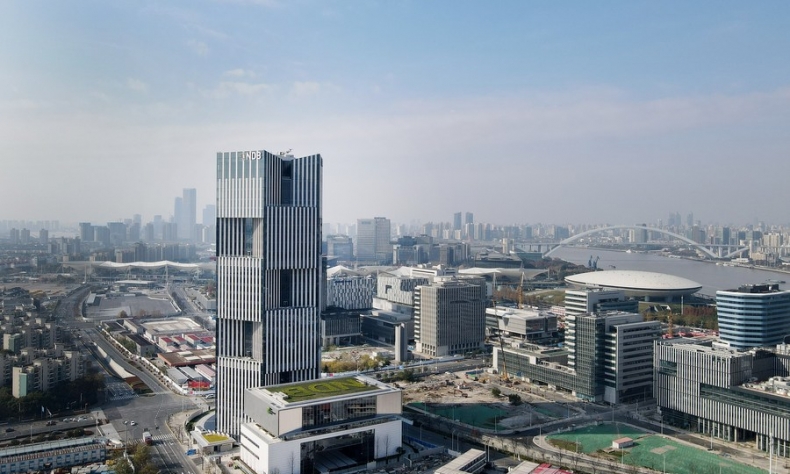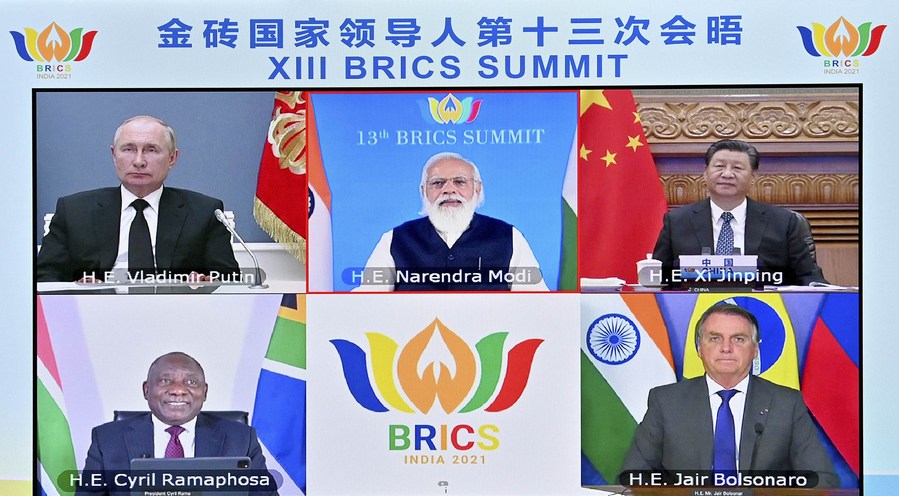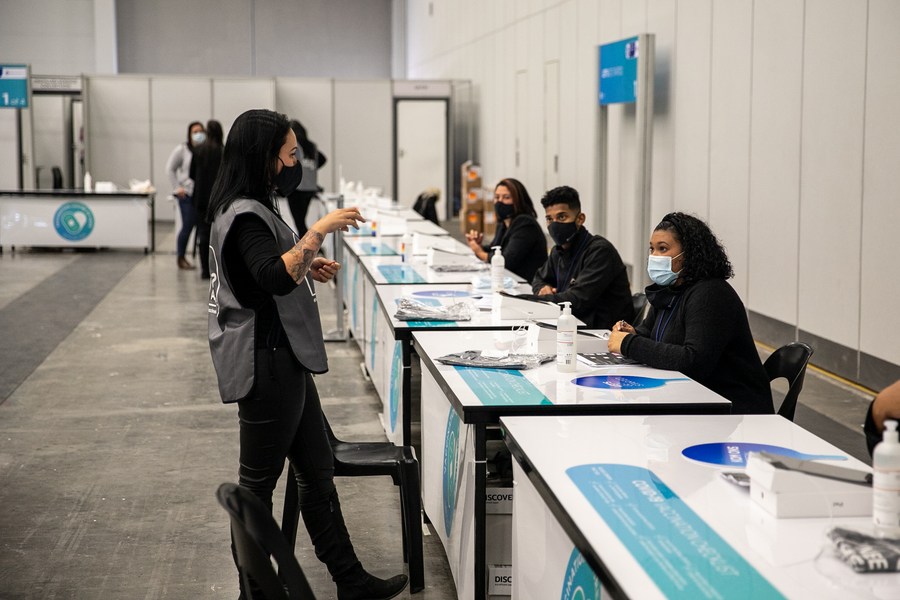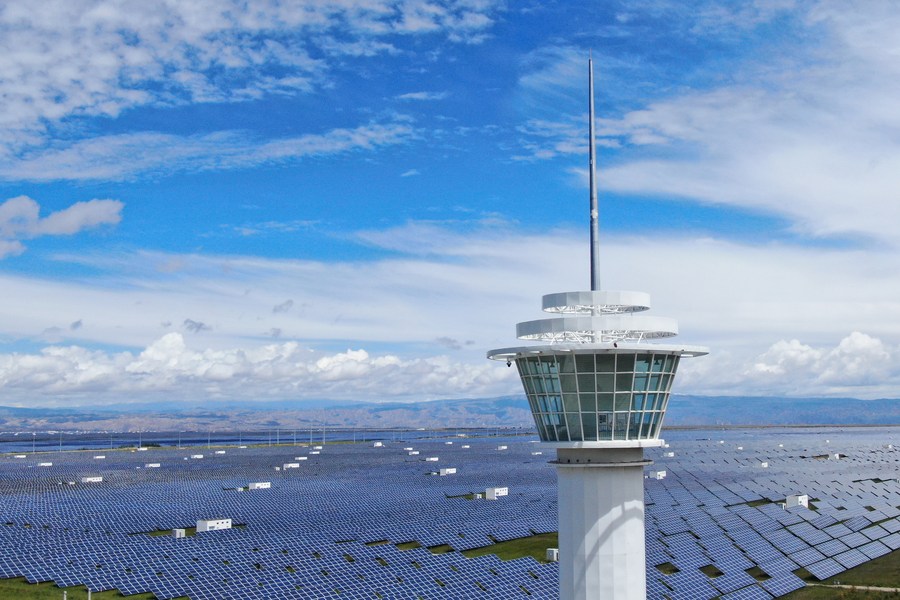The Power of Five, 15 Years On

As BRICS celebrates its 15th year, the cooperation has improved the lives of more than 3 billion people.
With the COVID-19 pandemic still causing disruptions around the world, cooperation in public healthcare and related spheres remains a priority. Global leaders and international organizations have been stressing the need to strength cooperation based on multilateralism with greater urgency. This year, at the 13th BRICS Summit in September, President Xi Jinping made a five-point proposal for the future direction of the bloc, underlining cooperation in the fields of public health, vaccines, the economy, security and people-to-people exchanges.
More thoughts on cooperation and governance emerged in Beijing during a two-day virtual seminar, the BRICS Seminar on Governance 2021, from experts and officials from the member countries.
“The seminar responded to the aspirations of the BRICS countries for economic recovery and accelerating development in the context of the COVID-19 pandemic. It reflected the common desire to deepen the exchange of experience in governance and to further promote win-win cooperation,” China’s State Council Information Office Minister Xu Lin said at its inauguration on November 2.

Du Zhanyuan, president of China International Communications Group, indicated at the forum that the BRICS countries, now facing the dual tasks of controlling the COVID-19 pandemic and recovering their economies, should strengthen their capacities for sustainable development and share development experience. He emphasized practicing true multilateralism for BRICS countries in international cooperation.
As a pioneer from emerging economies and developing countries, the BRICS member states – Brazil, Russia, India, China and South Africa – have been promoting cooperation and reform of global governance since the inception of the bloc 15 years ago.
Vaccine cooperation
During the early days of the pandemic, the scarcity of vaccines, especially for developing countries, was a major concern, triggering calls and then initiatives for equitable distribution of vaccine doses. The BRICS countries showed commendable cooperation on vaccine procurement, with China playing a leading role.
Project S, a mass vaccination experiment carried out between February and April in Serrana, a small town in Brazil, hit the headlines globally for its success in controlling the pandemic. Around 27,000 residents aged over 18, almost 60 percent of the town’s population, received two doses of the vaccine CoronaVac at a time when elsewhere in Brazil, only about 10 percent of the population had been vaccinated and Brazil remained among the top suffering nations with a high number of COVID-19 deaths.
The maker of CoronaVac, Chinese pharmaceutical company Sinovac, worked with Brazil’s Butantan Institute, one of the two co-hosts of Project S, to partially produce the vaccine in Brazil.

South Africa imports more than 95 percent of its pharmaceutical ingredients, with China and India as the major sources, and India itself obtains almost 70 percent of its basic drug ingredients from China, which shows China’s importance on the global chain of active pharmaceutical ingredients for vaccine production.
BRICS had agreed to establish a BRICS vaccine research and development center in 2018 and this year’s summit welcomed its early launch in a virtual format, showing how the pandemic has accelerated the formation of a cross-border public health system.
Funeka Yazini April, coordinator of the BRICS Research Center, Human Sciences Research Council in South Africa, said at the Beijing conference that the BRICS vaccine center will be a good initiative for global governance reform. It would promote local content among BRICS for pharmaceutical production, which could then go global.
Climate cooperation
Besides the pandemic, climate change remains another pressing global concern with extreme weather leading to rising numbers of floods, forest fires and freezing winters worldwide. The BRICS countries support the United Nations Framework Convention on Climate Change and have been urging all countries to implement the Paris Agreement signed by over 100 countries. The pact commits to reducing greenhouse gas emissions to keep global warming annually within 2 degrees Celsius, preferably below 1.5 degrees Celsius, compared to pre-industrial levels.
All the five BRICS countries have stepped up adopting clean technologies and renewable energies. China has pledged to peak its carbon emissions by 2030 and achieve zero carbon emissions by 2060. It has also pledged not to build any new coal-fired power projects abroad, to increase the share of non-fossil fuels in its energy consumption to 25 percent by 2030, and reduce carbon intensity by more than 65 percent compared to 2005 levels.

To jointly tackle climate change, the BRICS Energy Research Cooperation Platform was launched in 2018. It is working to promote sustainable development, share advanced energy technologies, and exchange data and innovation. It will also expand cooperation in educational programs and synergize development institutions.
There is also consensus in BRICS on reducing the use of fossil fuels. As the biggest coal users of the bloc, China and South Africa have pledged to greatly reduce their coal consumption by 2030. Krish Chetty, research manager at Human Sciences Research Council, South Africa, said he expected to see more cooperation and contributions from local governments, private sectors and the academia for measures to reduce the dependence on fossil fuels and transition to renewable energies.
Financial muscle
The New Development Bank (NDB) established by BRICS to mobilize funding for infrastructure and sustainable development projects in member countries as well as other emerging economies and developing countries, has been complementing the work of existing multilateral and regional financial institutions and has given a financial muscle to developing countries. In September, the United Arab Emirates, Uruguay and Bangladesh joined the NDB as its first new member countries, expanding its cooperation scope.
So far, the NDB has invested over US $30 billion in 80 projects on clean energy, transportation, urban development, sanitation, infrastructure and digital devices. When the pandemic erupted, disrupting the global economy, the bank set up an emergency assistance loan mechanism, providing US $9 billion in fast-track emergency loans to BRICS countries.
“The successful operations of the NDB in the past six years have enriched the connotation of the global governance system, effectively advanced the overall strength of the international system, and practiced true multilateralism,” said Zhou Qiangwu, NDB Vice President and Chief Administrative Officer.
As BRICS celebrates its 15th year, the cooperation has improved the lives of more than 3 billion people. The five countries’ economic aggregate has jumped from 12 percent to 24 percent of the world economy and their contribution to the global economic growth exceeded 50 percent.
 Facebook
Facebook
 Twitter
Twitter
 Linkedin
Linkedin
 Google +
Google +










